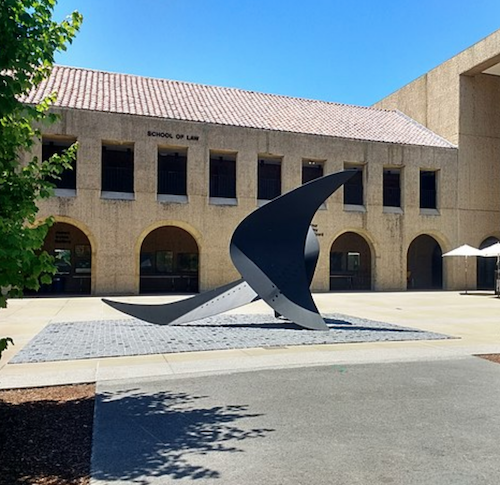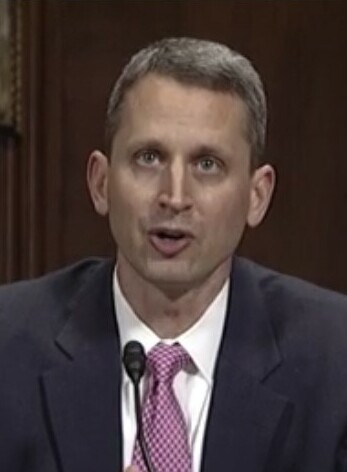After 'disruptive heckling,' Stanford Law requires free speech session, notes associate dean's leave

Stanford Law School in June 2019. Photo by Mx. Granger, CC-Zero, via Wikimedia Commons.
Stanford Law School is requiring its students to attend an educational session on free speech following students’ “disruptive heckling” of a conservative federal appeals judge during a March 9 speech with the Federalist Society.
Jenny Martinez, the dean of Stanford Law, announced her decision in a March 22 letter to students, report Law.com, Law360, Reuters and Bloomberg Law. How Appealing noted coverage.
The educational session will last a half day and will be in the spring quarter. The topic will be free speech and the norms of the legal profession. Speakers with a range of viewpoints will be invited.
Martinez said she was requiring attendance, rather than taking disciplinary action against students who disrupted the speech by Judge Stuart Kyle Duncan of the 5th U.S. Circuit Court of Appeals at New Orleans.
Martinez said students who want to protest a speaker are free to do so, as long as they don’t disrupt the proceedings. Martinez and Marc Tessier-Lavigne, the president of Stanford University, cited that policy when they apologized to Duncan, who had referred to hecklers as “juvenile idiots.”
 Judge Stuart Kyle Duncan in November 2017 during his nomination hearing. Photo from the U.S. Senate Judiciary Committee, PD US Congress, via Wikimedia Commons.
Judge Stuart Kyle Duncan in November 2017 during his nomination hearing. Photo from the U.S. Senate Judiciary Committee, PD US Congress, via Wikimedia Commons.
“There were easily a hundred students in the room” where Duncan spoke, Martinez said in her March 22 letter. “Some individual students crossed the line into disruptive heckling while others engaged in constitutionally protected nondisruptive protest, such as holding signs or asking pointed questions.”
Some of the protesting students disagreed with Duncan’s January 2020 opinion in which he refused to refer to a transgender inmate by her preferred female pronouns. He reasoned that doing so could unintentionally convey tacit approval of a litigant’s underlying legal positions.
Martinez also announced that an associate dean, Tirien Steinbach, is on leave after criticizing Duncan during the event. Steinbach is the associate dean for diversity, equity and inclusion. She came to the podium after Duncan asked for an administrator to help restore order.
In her remarks, Steinbach said she was uncomfortable because “this event is tearing at the fabric of this community,” and Duncan’s work has caused harm to many people there. She added that anyone who chooses to remain in the room “should give space to hear what Judge Duncan has to say” and to ask questions during a Q&A session.
Martinez criticized that type of approach.
“When a disruption occurs and the speaker asks for an administrator to help restore order,” she wrote, “the administrator who responds should not insert themselves into debate with their own criticism of the speaker’s views and the suggestion that the speaker reconsider whether what they plan to say is worth saying, for that imposes the kind of institutional orthodoxy and coercion that the policy on academic freedom precludes.”
“At future events,” Martinez wrote, “the role of any administrators present will be to ensure that university rules on disruption of events will be followed, and all staff will receive additional training in that regard.”
Martinez added, however, she is concerned about “hateful and threatening messages” that Steinbach has received. Actionable threats “will be investigated and addressed as the law permits,” Martinez said.
Martinez said she could not provide further information on Steinbach’s leave because the university “does not comment publicly on pending personnel matters.”



